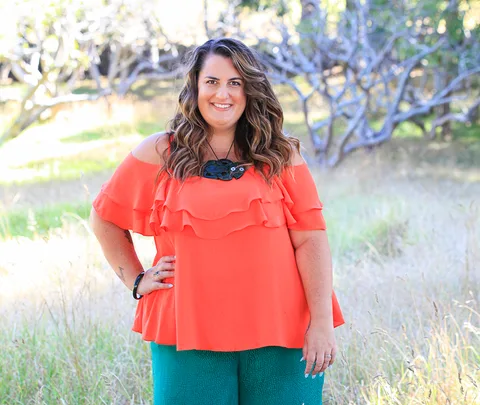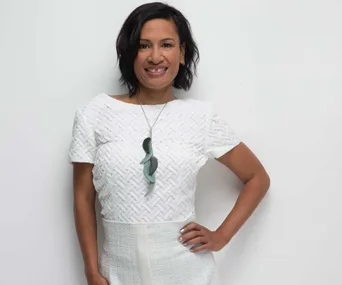Award-winning journalist Qiane Matata-Sipu has spent the last three years creating a precious taonga that she hopes will leave a lasting legacy for her four-year-old daughter Haeata te Kapua.
The author and photographer of Nuku: Stories of 100 Indigenous Women, a book and podcast celebrating unsung heroes, was recently long-listed for a Booksellers Aotearoa New Zealand Award, and won the Arts and Culture section of the 2021 Women of Influence Awards.
But Qiane, who is Cook Island/Māori, is not fazed by all of the accolades and attention. The 36-year-old appreciates that her self-published book is connecting with readers and is making her daughter proud of her.
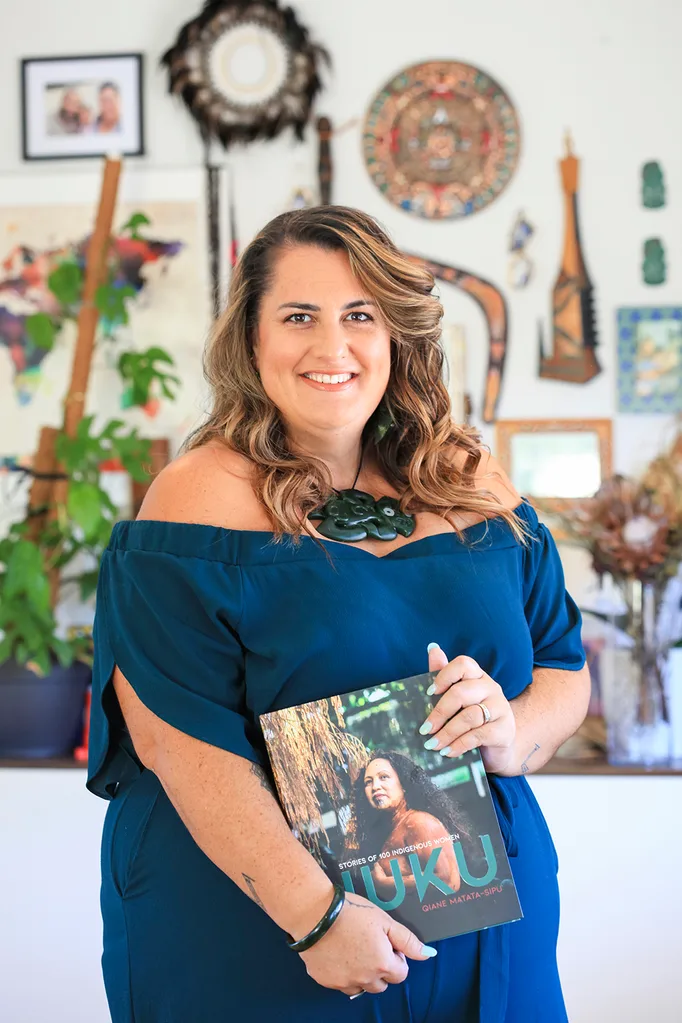
‘I was starting to question my own self-worth – all of those feelings come with grief’
“When I was pregnant with Haeata te Kapua and she was growing inside of me, the idea for Nuku came to me. I started thinking about the stories that I wanted to tell my daughter, the diverse indigenous women I wanted her to see and look up to. I really wanted her to understand the beauty of whakapapa, embrace and celebrate her Tongan, Cook Island and Māori cultures.
“I also wanted her to see her mum be successful.”
Mostly self-funded with a small support team, Nuku is a first of its kind in storytelling in Aotearoa, profiling 100 indigenous wāhine across the country, through portrait photography, an audio podcast, moving images, art exhibitions and now a popular book.
“We live in the most socially connected world and we seem so disconnected. I really wanted to bring out real, authentic conversations that got us thinking, that were powerful and reminded us of who we are,” Qiane explains. “I wanted to encourage this collective wisdom that we all have as indigenous women.”
Qiane, who started out as a journalist and photographer for magazines before embarking on a freelance career, says the only criteria to be one of the 100 women in Nuku was they needed to be “kick-ass”.
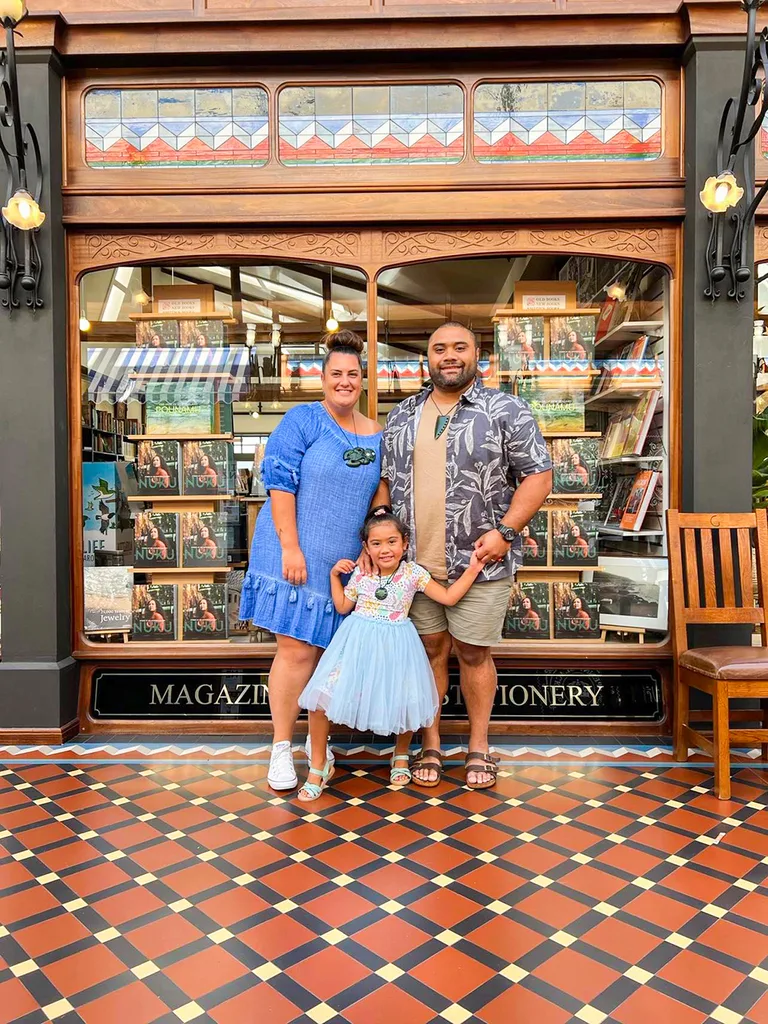
‘I have learned that nothing is impossible’
The project features a range of ages and backgrounds, from media personalities like Stacey Morrison and Kanoa Lloyd, to everyday women doing extraordinary things, like Qiane’s own mother Karen, who is number 100 in the book.
“We also opened it up for people to nominate wāhine in their communities or in their whānau. We had so many nominations that we ended up with a very long list and we found it very hard to choose.”
Qiane says the success and the completion of the Nuku project comes after years of hardship in her personal life. In 2016, her grandmother Dawn, the person who she was the closest to, passed away. Also, she and husband Willie, who is Tongan, struggled for more than six years to get pregnant and the journey was taking its toll.
“The grief of losing my nan, paired with my infertility at the time, sent me into this space that I never thought I’d be in, and is now a distant memory,” she shares.
“I had lost one end of my whakapapa and I hadn’t yet brought into the world my other end of my whakapapa. I really started to think about my life and who I was as an indigenous woman.
“I was starting to question my own self-worth – all of those feelings and thoughts come with grief.”
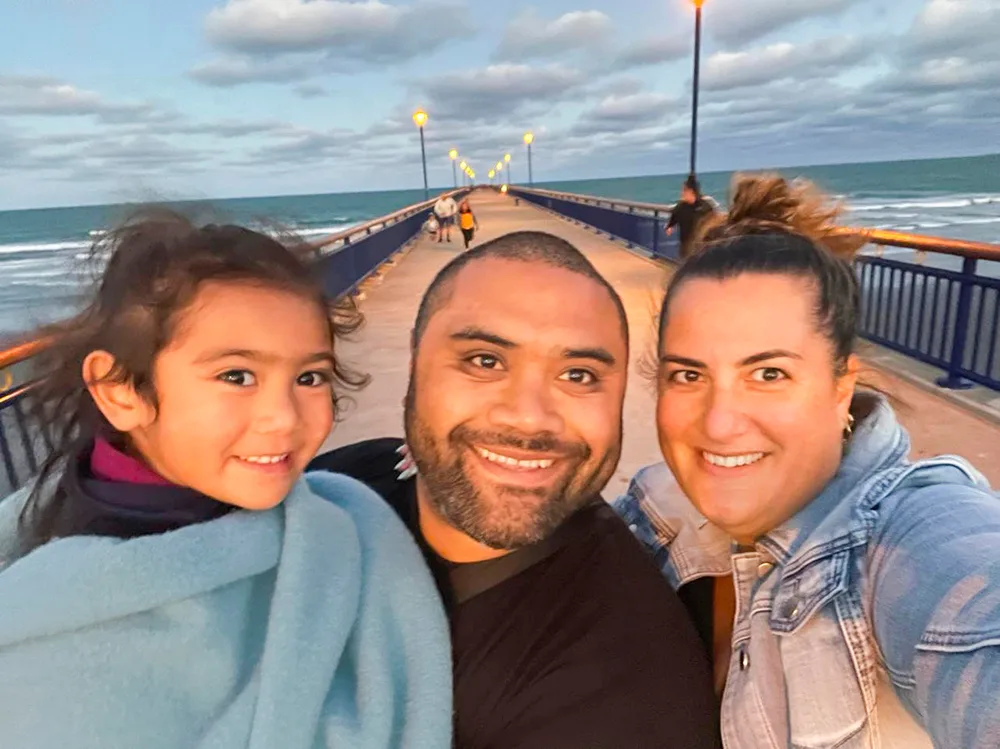
Qiane and Willie waited six years for their precious daughter Haeata te Kapua.
Qiane, who was also diagnosed with polycystic ovary syndrome around this time, tried many methods to get pregnant, including two unsuccessful rounds of intrauterine insemination treatment, as well as various traditional Tongan and Māori remedies.
She and her husband had all but given up hope when, a year after her grandmother’s death, Qiane found out she was expecting. She describes it as a miracle.
“I have learned that nothing is impossible,” the proud mother says as she cuddles her precious daughter on her lap.
Nuku is not the only project that Qiane has been involved in which will make her girl extremely proud. Qiane and her cousins organised the mass occupation of Ihumātao, the sacred Māori site in South Auckland, which was seized by the Crown in 1863 and sold to the private developer Fletcher Building in 2016, who planned to build houses on the land.
The peaceful occupation drew national attention and thousands of New Zealanders travelled from all around the country to support the cause.
“We spoke to our whānau and said this is what we want to do,” Qiane recalls.
Nuku: Stories of 100 Indigenous Women by Qiane Matata-Sipu (Qiane+Co, $65) is available now.
